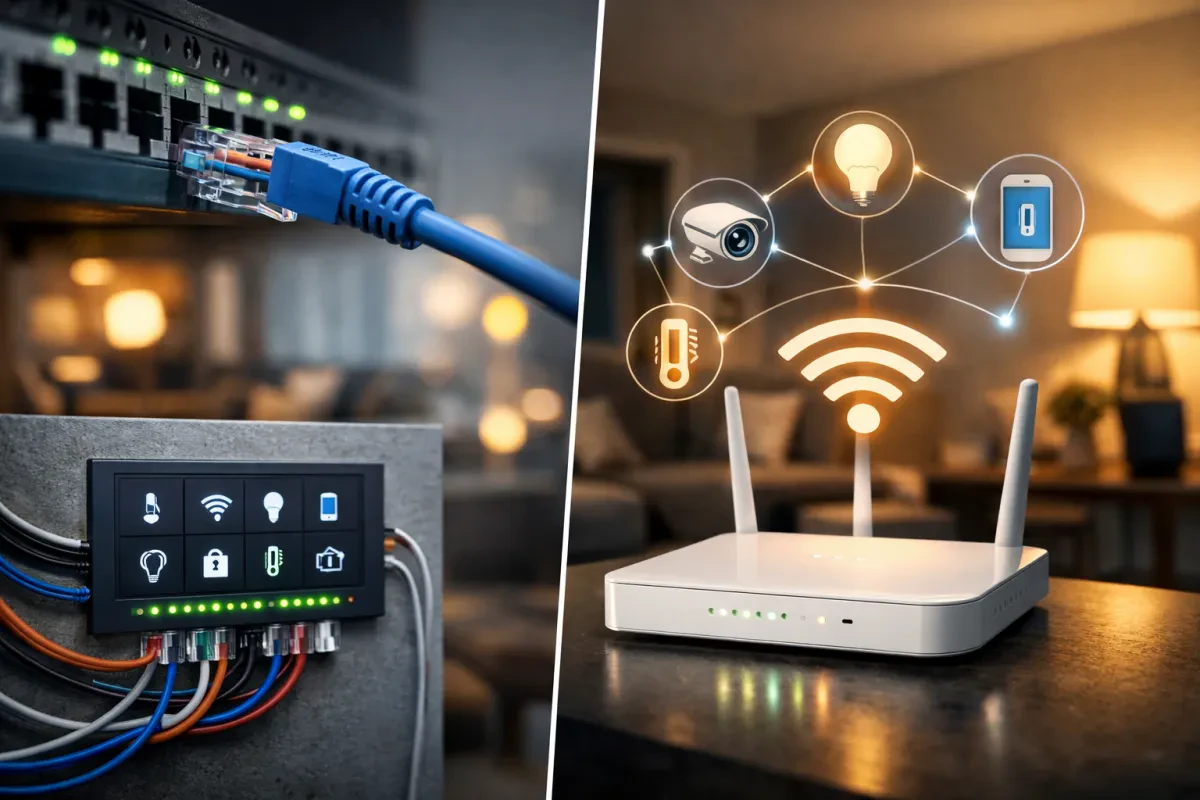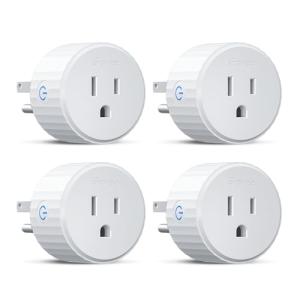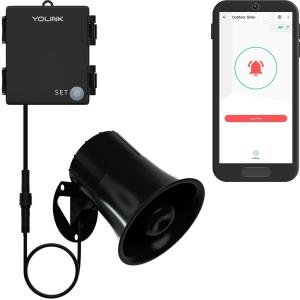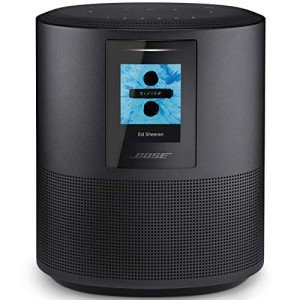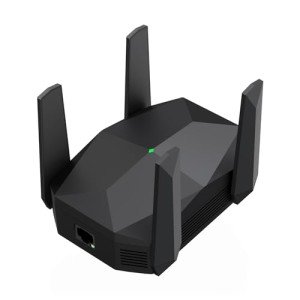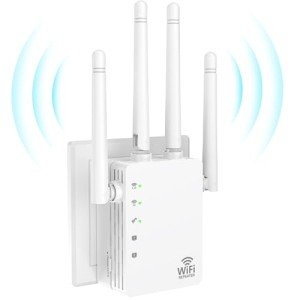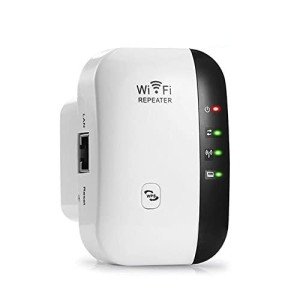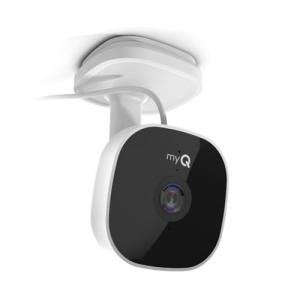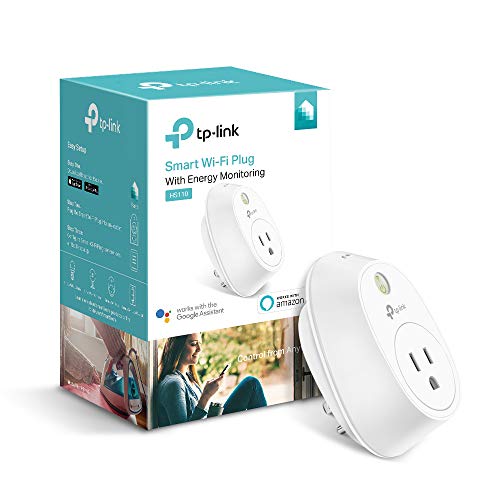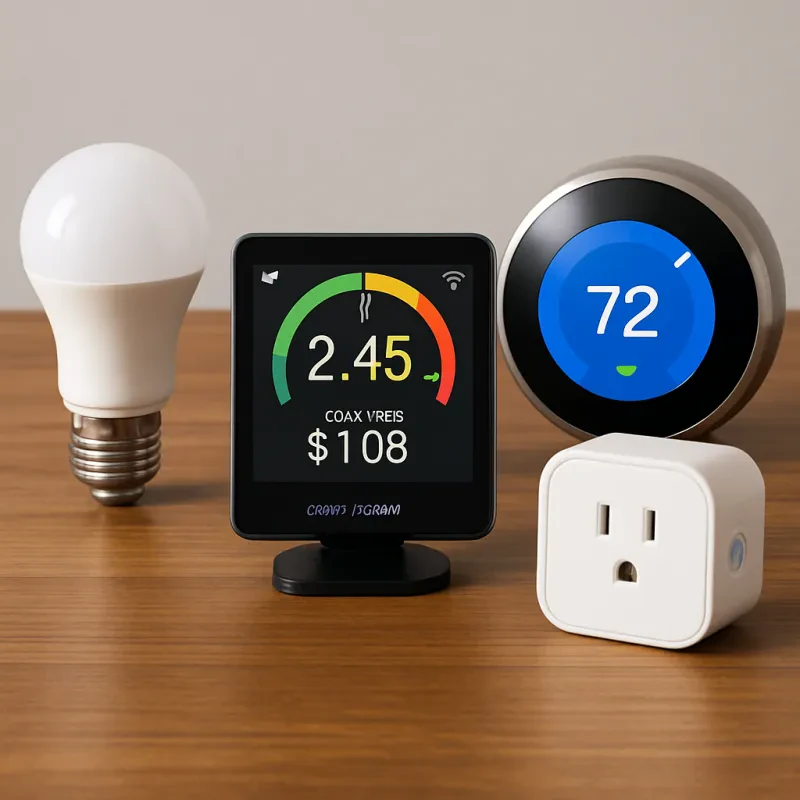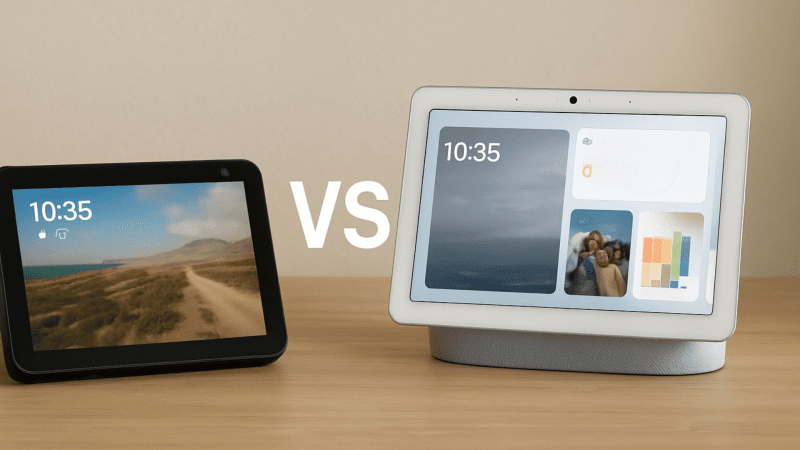Wired vs Wifi Home Automation Explained
Wired Home automation
Wired home automation systems are designed to provide reliable and efficient control over your home's various functions. These systems use physical cables such as Ethernet or coaxial, to connect different devices, ensuring a stable and fast connection without interference. This wired approach is less susceptible to disruptions typically caused by wireless signals, making it an ideal choice for individuals who prioritize security and performance.
Smart WiFi Plugs with Voice Control & Timer
Upgrade Your Home Automation Game with our Smart WiFi Plugs
Product information
$29.99 $26.99
Product Review Score
4.48 out of 5 stars
180 reviewsProduct links
One of the main advantages of a wired system is its ability to offer consistent power and data transfer. Features like lighting controls, security systems, and HVAC can all work seamlessly together without the risk of dropped signals. Homeowners can enjoy a smoother experience, knowing that their devices will respond promptly when needed. This reliability is particularly important in critical applications, such as alarm systems, where communication failure could pose a risk to safety.
Wireless Outdoor Smart Siren & Alarm Controller Kit
Control Your Home Security with Ease Using Our Wireless Outdoor Smart Siren & Alarm Controller Kit
Product information
$59.99 $46.99
Product Review Score
4.53 out of 5 stars
60 reviewsProduct links
Setting up a wired home automation system may require more initial effort and planning compared to wireless options. Installing cables involves some degree of renovation, such as running wires through walls or ceilings. However, the long-term benefits, including reduced maintenance and the ability to expand the system without relying on signal range, make wired automation worth considering. For tech enthusiasts or those building a new home, a wired system can be tailored to fit specific needs and preferences.
While wired systems may lack the convenience of mobile control that comes with wireless technologies, they can still be integrated with smart devices to provide a user-friendly experience. Homeowners can utilize touch panels or centralized control systems to manage their wired devices efficiently. As we delve into the pros and cons of each system later, understanding the reliability and power of wired home automation will help make an informed decision based on your unique lifestyle and requirements.
Exploring Wifi Home Automation Solutions
When it comes to home automation, one of the most popular choices is WiFi-based solutions. This approach allows homeowners to control various devices, such as lights, thermostats, and security cameras, all from their smartphones or tablets. The convenience of managing your home from anywhere with an internet connection is a significant advantage. Whether you’re at work or on vacation, you can easily monitor and adjust your home's systems.
WiFi home automation systems are generally easy to set up and use. Most devices connect directly to your existing WiFi network, eliminating the need for extensive wiring or special hubs. Just plug in your new smart appliance, download its companion app, and you're ready to begin. This straightforward process is ideal for those who may not have technical expertise but still want to enjoy the benefits of a smart home.
Bose Smart Speaker with Alexa, Black
Experience Premium Sound and Alexa Integration with the Bose Smart Speaker in Black
Product information
$274.95
Product Review Score
4.09 out of 5 stars
87 reviewsProduct links
Another appealing aspect of WiFi home automation is the range of products available. From smart bulbs to intelligent locks, the variety is vast. Many popular brands offer compatible devices that can seamlessly work together, thanks to advancements in technology and standards like IFTTT (If This Then That). This interoperability enables homeowners to create customized setups tailored to their unique preferences and needs.
However, it’s essential to consider some challenges associated with WiFi home automation. The reliability of your WiFi network is crucial; if your internet goes down, so do your smart devices. Additionally, with so many devices connected, it can lead to bandwidth issues, slowing down your network. Therefore, having a robust home network and potentially investing in a mesh WiFi system can help mitigate these concerns, ensuring that your smart home runs smoothly.
AX3000 WiFi 6 Range Extender with Ethernet Port
Enhance your home network with improved coverage and faster speeds for all your devices
Product information
$99.99
Product Review Score
4.86 out of 5 stars
108 reviewsProduct links
Comparing Performance and Reliability
When it comes to home automation, performance and reliability are crucial factors that can greatly impact your experience. Wired systems typically offer superior performance because they rely on physical connections, allowing for faster data transfer and reduced latency. This means that devices connected through wires can communicate with each other almost instantaneously, providing a seamless experience. In contrast, Wi-Fi systems depend on wireless signals that can be affected by various factors, such as distance from the router, physical obstructions, and interference from other electronic devices.
Long Range WiFi Extender Signal Booster 1200Mbps
Boost your home network's reach and enjoy seamless connectivity throughout your living space
Product information
$599.99 $45.99
Product Review Score
4.99 out of 5 stars
221 reviewsProduct links
Reliability is another area where wired systems often shine. Since wired connections do not suffer from signal loss or interference, they tend to be more stable. Homeowners can enjoy uninterrupted service even during peak usage times or in challenging environments. On the other hand, Wi-Fi systems can experience dropouts, especially in larger homes with multiple devices connected to the same network. These disruptions can be frustrating if you rely on your smart devices for important tasks, such as security monitoring or climate control.
WiFi Extender for Home, Up to 5000 sq.ft
Enhance your home connectivity with seamless WiFi coverage throughout every corner of your living space
Product information
$9.99
Product Review Score
4.26 out of 5 stars
160 reviewsProduct links
However, it’s essential to consider that wired systems may require more effort to install and maintain. Running cables through walls and ceilings can be cumbersome, and in some cases, might involve professional help. Wi-Fi systems, conversely, offer the advantage of easier installation and flexibility, allowing you to add or remove devices without worrying about physical connections. This accessibility is a significant selling point for many homeowners looking to simplify their automation setup.
Ultimately, the choice between wired and Wi-Fi home automation depends on your specific needs and priorities. If you value top-notch performance and reliability, wired solutions may be the better fit. If you prioritize convenience and ease of use, a Wi-Fi system might be more suitable for your home. Understanding these differences can help you make an informed decision that fits your lifestyle.
Choosing the Right Option for You
When it comes to setting up a home automation system, one of the biggest decisions you'll face is whether to go with a wired or wireless (WiFi) solution. Both options come with their own set of benefits and drawbacks, so it's important to consider your unique needs. If you're someone who loves stability and reliability, wired connections might be the way to go. On the other hand, if flexibility and ease of installation are your priorities, WiFi could be the better choice.
Wired home automation systems often provide a more consistent performance. They are less likely to suffer from interference and offer a steady connection. This is particularly important for devices that require constant communication or those that control critical functions in your home, like security systems. However, installing a wired setup can be quite invasive, often requiring drilling and running cables throughout your home. This makes it a more suitable choice if you're building a new home or planning a major renovation.
myQ Smart Garage HD Camera - Wifi Enabled
A Smart Way to Monitor Your Garage in High Definition
Product information
$17.50
Product Review Score
4.71 out of 5 stars
120 reviewsProduct links
On the flip side, wireless home automation is usually simpler to set up. Most WiFi devices can be installed in minutes, with minimal disruption to your living space. This option is perfect for renters or those who want to add smart devices without committing to extensive cabling. However, it's important to note that WiFi networks can sometimes be less reliable, especially in areas of your home with poor signal strength. If you have a larger home or many connected devices, you might need to consider additional equipment like range extenders.
Ultimately, the right choice depends on your lifestyle, budget, and specific requirements. Think about how you plan to use your home automation system and the level of control you desire. Will you prioritize reliability or convenience? Take your time to weigh the pros and cons of both options before making your decision, as this investment will significantly shape your smart home experience.
Smart WiFi Plug with Energy Monitoring by TP-Link
Effortlessly Control and Monitor Your Home's Energy Usage with TP-Link's Smart WiFi Plug
Product information
$88.99
Product Review Score
4.45 out of 5 stars
185 reviews